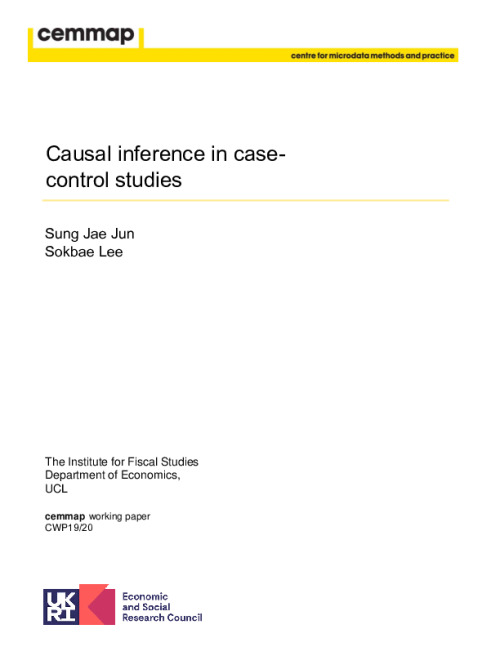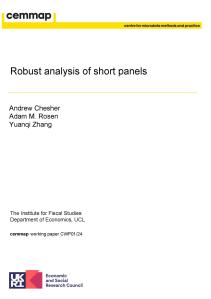Downloads

CWP1920-Causal-inference-in-case-control-studies.pdf
PDF | 420.66 KB
We investigate identification of causal parameters in case-control and related studies. The odds ratio in the sample is our main estimand of interest and we articulate its relationship with causal parameters under various scenarios. It turns out that the odds ratio is generally a sharp upper bound for counterfactual relative risk under some monotonicity assumptions, without resorting to strong ig-norability, nor to the rare-disease assumption. Further, we propose semparametrically efficient, easy-to-implement, machine-learning-friendly estimators of the aggregated (log) odds ratio by exploiting an explicit form of the efficient influence function. Using our new estimators, we develop methods for causal inference and illustrate the usefulness of our methods by a real-data example.
Authors

Research Fellow Columbia University
Sokbae is an IFS Research Fellow and a Professor at Columbia University, with an interest in Econometrics, Applied Microeconomics and Statistics.

Pennsylvania State University
Working Paper details
- DOI
- 10.1920/wp.cem.2020.1920
- Publisher
- The IFS
Suggested citation
Jun, S and Lee, S. (2020). Causal inference in case-control studies. London: The IFS. Available at: https://ifs.org.uk/publications/causal-inference-case-control-studies (accessed: 1 May 2024).
More from IFS
Understand this issue

Gender norms, violence and adolescent girls’ trajectories: Evidence from India
24 October 2022

Empty defence spending promises are a shot in the dark
29 April 2024

Public investment: what you need to know
25 April 2024
Policy analysis

IFS Deputy Director Carl Emmerson appointed to the UK Statistics Authority Methodological Assurance Review Panel
14 April 2023

ABC of SV: Limited Information Likelihood Inference in Stochastic Volatility Jump-Diffusion Models
We develop novel methods for estimation and filtering of continuous-time models with stochastic volatility and jumps using so-called Approximate Bayesian Compu- tation which build likelihoods based on limited information.
12 August 2014

Is there really an NHS productivity crisis?
17 November 2023
Academic research

Sample composition and representativeness on Understanding Society
2 February 2024

Understanding Society: minimising selection biases in data collection using mobile apps
2 February 2024

Robust analysis of short panels
8 January 2024